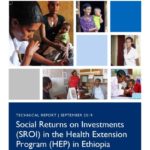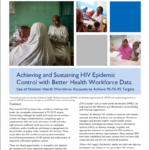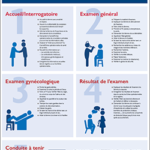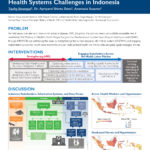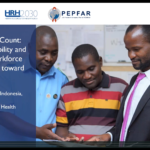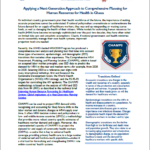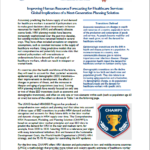30 Mar Social Returns on Investments (SROI) in the Health Extension Program (HEP) in Ethiopia
Community health workers play a pivotal role in many health systems by providing an essential link between people and health services. Ethiopia has formalized the role of community health workers and created an innovative community-based health extension program (HEP) to improve access to health...






